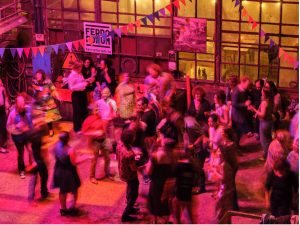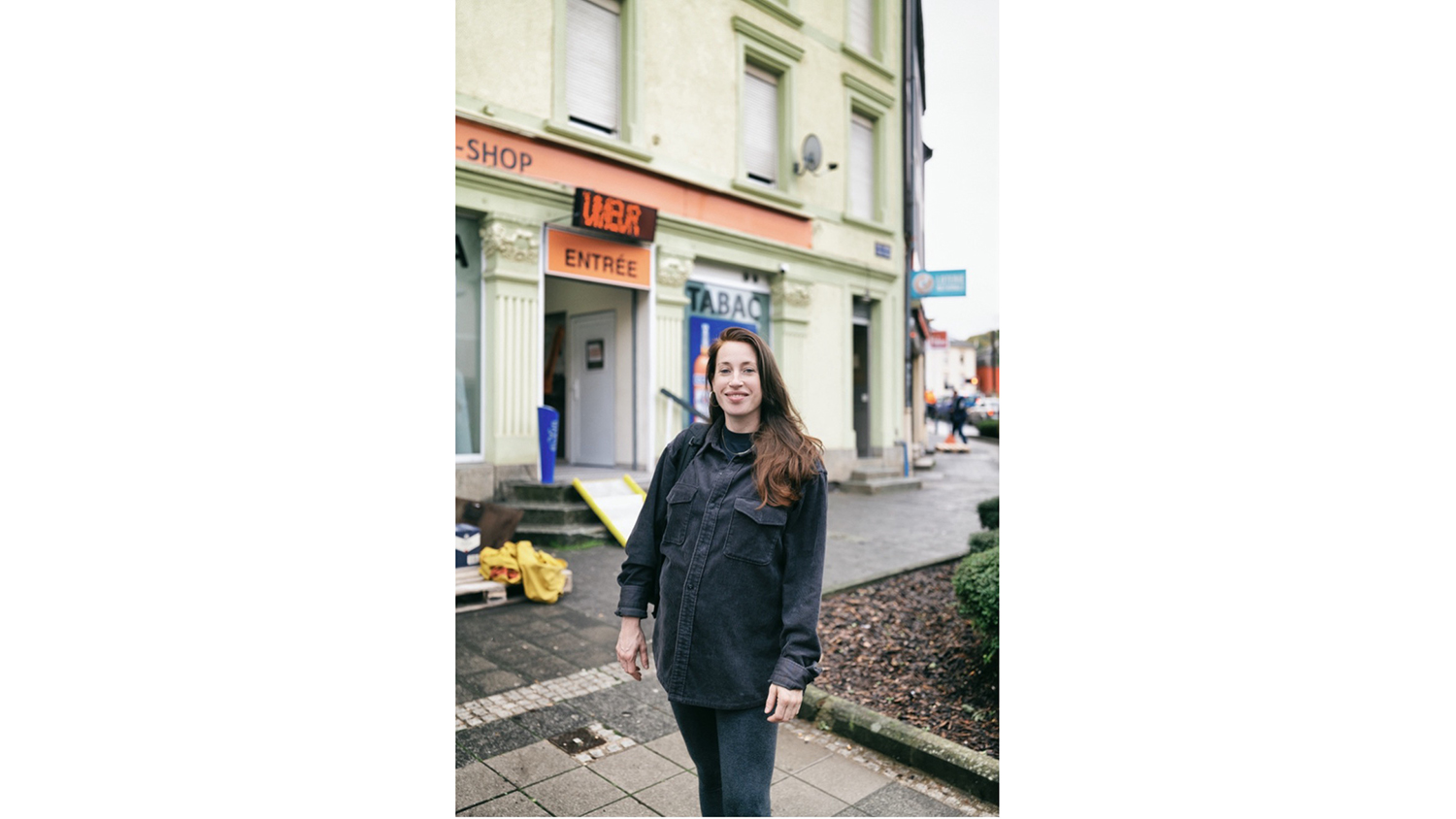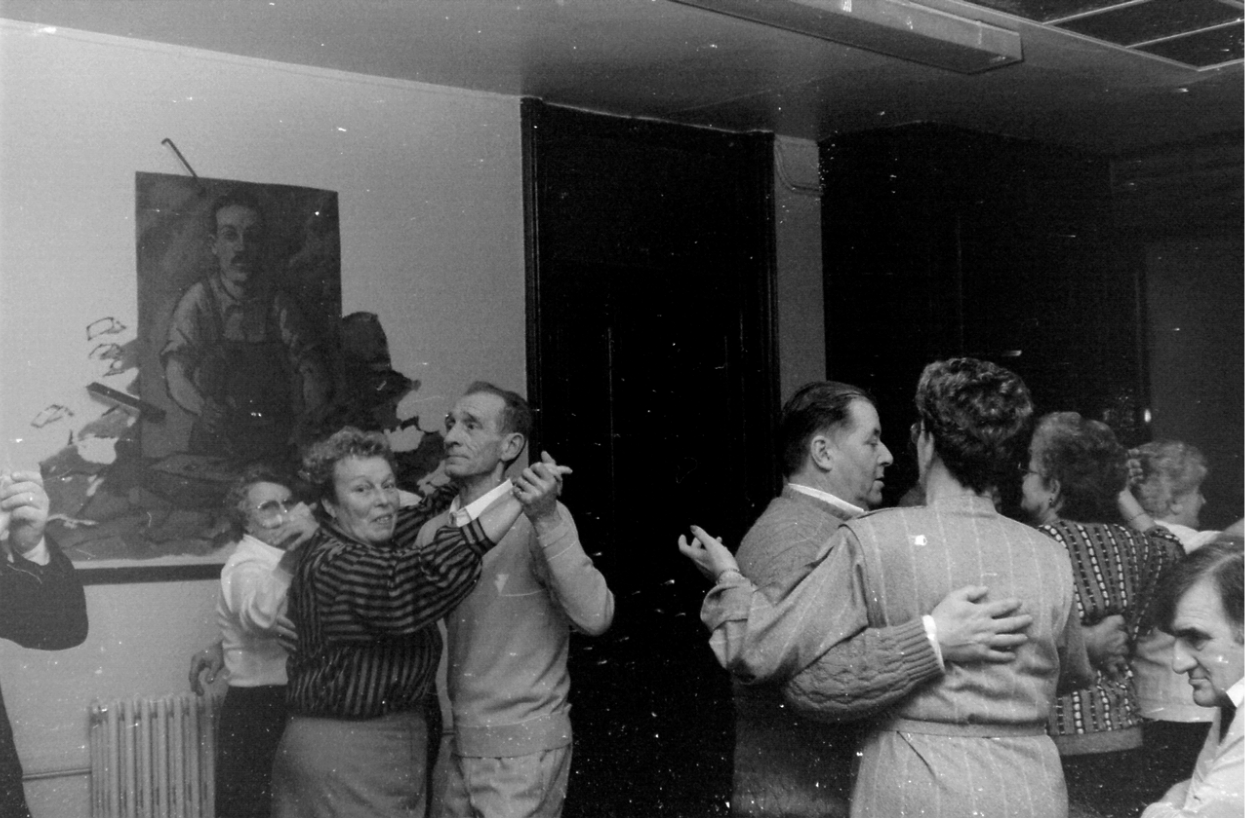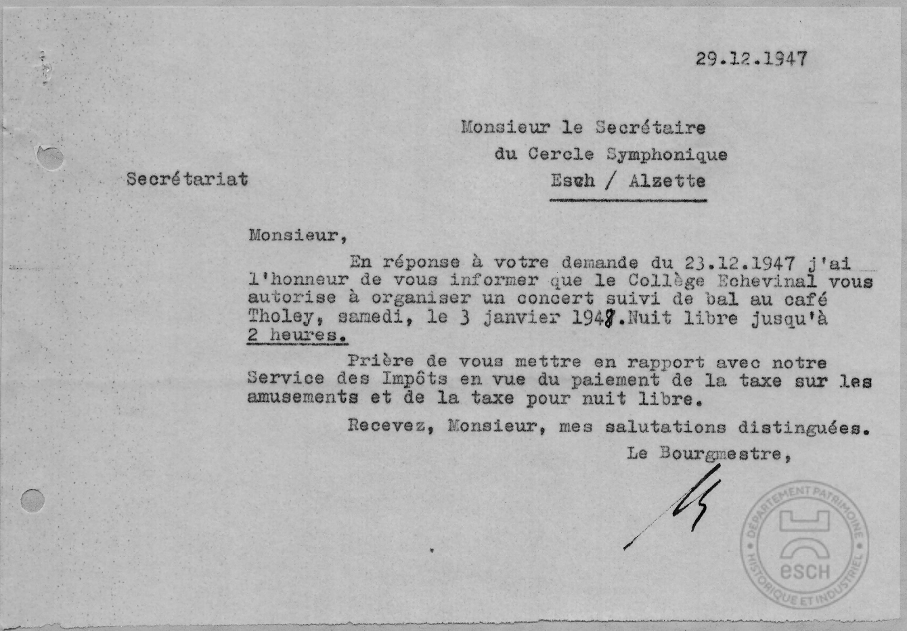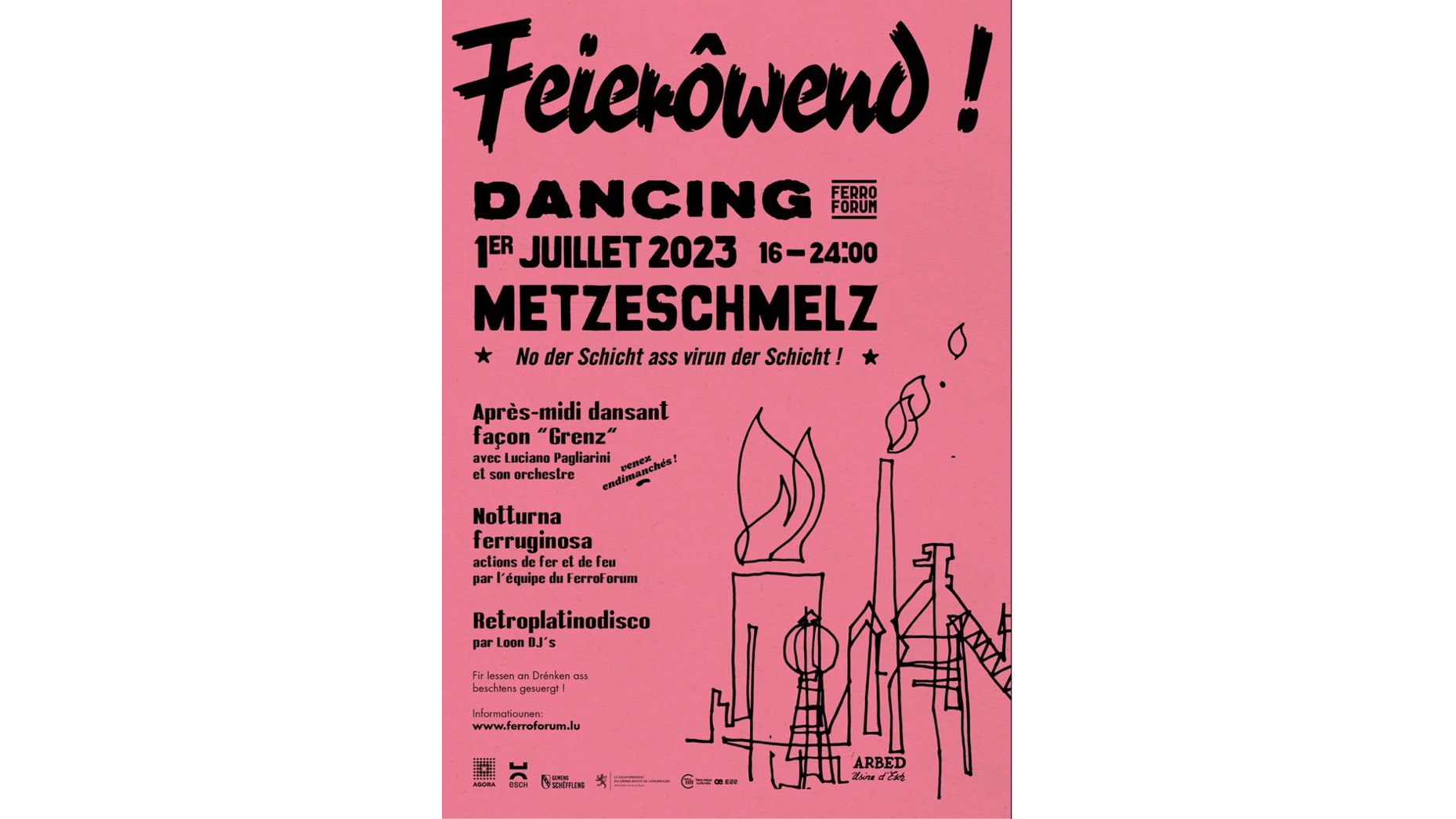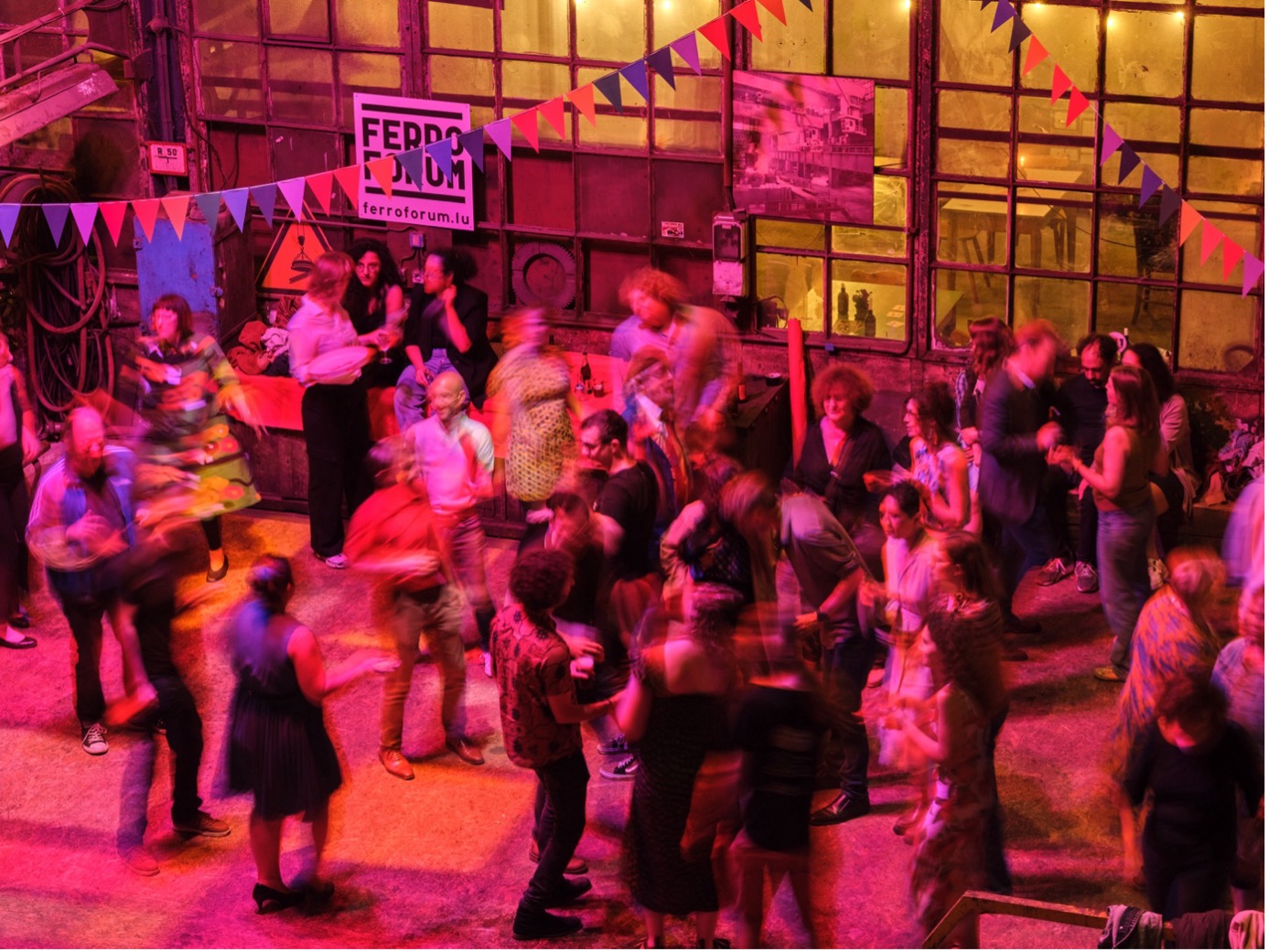A three-year study at the C²DH explored how realities as evanescent and unserious as dance parties have been documented in archives and can be reclaimed through an experimental methodology.
An “eventful” methodology
The Popkult60 research project (FNR-DFG), focusing on European transnational popular culture in the long Sixties, gave C²DH researcher Laura Steil the opportunity to deploy an experimental methodology, in the form of creative reenactments, to uncover the history of balls in Esch-sur-Alzette, centering on the working-class Grenz neighborhood. For her Dancing Esch project, she collaborated with local cultural players such as Kufa, Ferroforum, BiBSS and Escher Theater, with Luxembourgish swing dancers and an orchestra led by Luciano Pagliarini, to conceive the Swigning Esch and Feierôwend events.
They were inspired from data collected in national, municipal, and private archives, oral history interviews, and ethnographic observations. Importantly, they relied on crafting meaningful relationships with people over time, and inviting them to participate in the research process. These events not only produced or helped uncover historical sources—new research participants, additional narratives, first-hand sensorial experiences, etc.— but also elicited different research questions and refreshed Laura Steil’s interpretation of more traditional datasets.
“Sensing” the past
The P.I. of her project, Pr. Andreas Fickers, has insisted on the role of the senses when doing historical research on music, media, or radio, advocating for an “experimental media archeology”. Laura Steil, anthropologist by training, has always used “participant-observation” in her studies of festive cultures. Before researching Luxembourgish nightlife, she carried out fieldwork in Afro-Caribbean and hip-hop nightclubs in Paris. Traditional archives often fail to capture the sensorial and emotional dimensions of nightlife, its so-called “intoxication”, saying more about the organisational, regulatory and economic dimensions.
To explore less documented dimensions and “summon” them back, Feierôwend, co-conceived with Ferroforum, was held in the central workshop of the Metzeschmelz. Presented as an homage to the festive Grenz, it juxtaposed live Danzmusek with an analog DJ set of disco and rare grooves; it mingled the sights, smells and tastes of homemade panzerottis and fries with those of iron, dust and fire, perspiring from the factory. It invited to experiences of (re)enactment, spectacle and exhibition, which were rechanneled through various “(re)mediations”, including press coverage.
An afterlife of dances
The first edition, in July 2023, was filmed on super 8 camera by Kim El Ouardi, replicating forms of amateur filmmaking of the long 1960s. The second edition, in September 2024, was filmed by Carlo Thiel and the orchestra’s performance recorded by Philophon. It will be issued as an LP accompanying Laura Steil’s upcoming book. Alongside events, she conceived and filmed a dance tutorial video at the university’s Media Center with one of her research participants, an 82-year-old former factory worker, magician and DJ. Together, they gave a dance “class” at the second edition of Feierôwend.
A “body-on” approach is especially fruitful when working on forms of memory that are difficult to articulate through words. Embodied experiences based on, but also creatively deriving from, traditional sources may “bring the data home to us, in the plenitude of their action-meaning” (Turner, 1979: 82). They may also produce an “afterlife of dances” (Lepecki, 2010: 31) and new noeuds de mémoire (Rotherberg, 2010: 8). This is an opportunity not a caveat, according to Laura Steil, who embraces “reflective” nostalgia (Boym, 2007) as a research lens. “Afterlives” are often triggering, leading to renewed discussions and better questions.
Author(s)
Laura Steil
